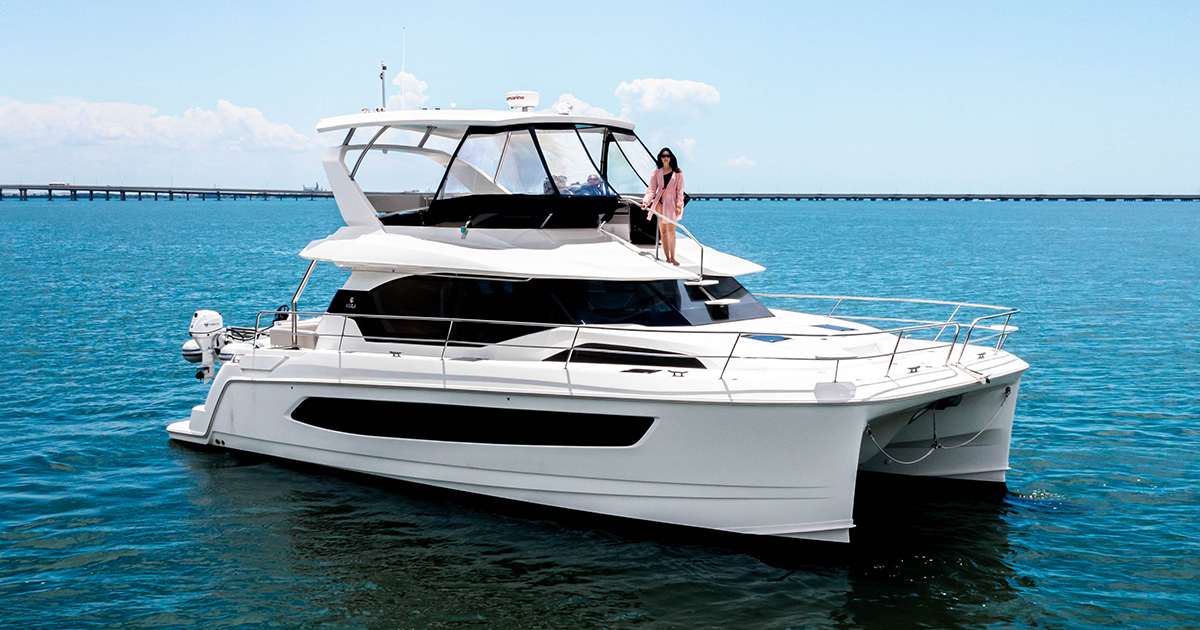Boat Bill of Sale: Essential Steps for a Smooth Transaction
A boat bill of sale is a crucial document that records the transfer of ownership of a watercraft from a seller to a buyer. This legal document provides details about the involved parties, the boat in question, and terms of the sale, thus ensuring a smooth transaction.

When it comes to purchasing or selling a boat, having a proper bill of sale is essential to protect both parties from potential disputes or issues down the line.
Before diving into the boat selling or buying process, it is essential to understand the purpose of a boat bill of sale and the relevant legal requirements.
Both the seller and buyer should be well-prepared with accurate information about the boat, such as its identification number, registration details, and purchase price.
Apart from these details, the document might need to be customized to include state-specific regulations and satisfy all the necessary legalities.
Repetitive sentences should be removed.

Key Takeaways
- A boat bill of sale documents the transfer of ownership and includes key information about the boat and the involved parties.
- Understanding legal requirements and state-specific regulations is crucial before selling or purchasing a boat.
- Proper preparation and completing the transaction according to the law will help prevent disputes and ensure a smooth process for both buyers and sellers.
Understanding the Boat Bill of Sale
Definition and Purpose
A boat bill of sale is a legally binding document that records the transaction details between the buyer and the seller in a boat sale. Its primary purpose is to protect both parties involved in the transaction while serving as proof of ownership, ensuring compliance with tax, legal, insurance, and financing requirements (source: BoatingWorld.
Essential for both private sellers and buyers, a comprehensively drafted Bill of Sale benefits all parties and helps prevent any disputes or legal issues that may arise post-sale.
Key Elements of a Boat Bill of Sale
- Date: To legally document the exact date of the transaction, the bill of sale must specify the date of sale. This date plays a crucial role in determining and fulfilling the involved parties' tax, legal, and insurance obligations.
- Vessel Details: Clearly outline essential information about the boat, such as its make, model, year, hull identification number, and overall condition. The vessel's registration and documentation information (if applicable) should also be included.
- Seller and Buyer Information: Both parties must provide their full name, address, contact details, and signatures to validate the transaction. This information is essential to establish the identities of the respective parties and legally transfer ownership of the vessel.
- Purchase Price and Terms: The bill of sale should clearly state the final agreed-upon price of the vessel, including any included items or accessories, taxing information, and payment terms (e.g., a deposit, full payment, or financing arrangements).
- Signatures: A boat bill of sale requires the hand-written signatures of both the buyer and the seller. These signatures serve as proof of agreement and help legally enforce the transaction terms and conditions.
- As-Is Condition: It is common for a boat bill of sale to mention an "as-is" condition, indicating that the buyer accepts the boat with its existing faults or issues and the seller is not responsible for any additional repairs or alterations post-sale.
Preparing to Sell or Purchase a Boat
Necessary Documents and Details
When selling or purchasing a boat, it is crucial to gather all the necessary documents and details.
This includes information about the boat's make, model, year, and type.
The HIN (Hull Identification Number) is an essential detail, as it helps to identify the specific boat involved in the transaction.
For the seller and buyer, it is important to have a properly drafted boat bill of sale that includes the boat's description, purchase date, price, and signatures of both parties.
Assessing Boat Value and Condition
Before setting a price, both the seller and the buyer should assess the boat's condition and market worth.
This can be done by comparing the boat's features and condition with similar boats in the market.
In addition, any repairs or maintenance issues should be addressed and documented to ensure the buyer knows the exact state of the boat.
The engine's condition is one of the most critical components to evaluate, as it directly affects the vessel's value.
Setting the Right Price
To set the right price for a boat, consider the previously assessed boat value and its current condition.
A proper listing should include clear photos and detailed descriptions of the boat's features and any repairs or modifications.
Offering a competitive, yet fair, price will attract potential buyers and facilitate a smooth sale process.
The seller should take into account market prices for similar boats and be prepared to negotiate with the buyer to reach an agreement that is satisfactory for both parties.
Completing the Boat Transaction
Transfer of Ownership
When finalizing the purchase of a boat, it is essential to complete a boat bill of sale to legally document the transfer of ownership from the seller to the buyer.
This process typically involves both parties providing their signatures on the bill of sale, and it may require notarization, depending on the specific state regulations.
In the boat bill of sale, make sure to include accurate information, such as the boat's identification number, make, model, year, and any other pertinent details.
The seller should also provide the boat's title as proof of their ownership.
Payment and Security Considerations
When it comes to payment arrangements, both the buyer and the seller should agree on the terms and conditions specified in the bill of sale.
Common payment methods include cash, check, or electronic transfer.
It is crucial to discuss payment expectations and outline them in the bill of sale to avoid any misunderstandings.
For added security and peace of mind, some buyers may request a seller warranty to ensure the boat's condition and legality.
Here is a brief checklist to guide both parties through the boat transaction process:
- Accurate boat information (identification number, make, model, year, etc.)
- Detailed payment terms (amount, method, date)
- Both parties' signatures
- Notarization, if required by state
- A copy of the boat's title or other proof of ownership
Legal and Regulatory Requirements
When buying or selling a boat, there are legal and regulatory requirements to abide by. This section will cover the essentials regarding boat bill of sale, with an emphasis on state-specific regulations, hull identification numbers (HIN), and title and registration procedures.
State-Specific Regulations
Each state has its own regulations and requirements for boat ownership, title, and registration.
For example, in Florida, a boat bill of sale must include the hull identification number, a description of the boat, and the selling price.
In contrast, Texas mandates a boat bill of sale with the seller and buyer's information, the hull identification number, and a brief description of the vessel.
Before initiating the process of buying or selling a boat, it is recommended to familiarize yourself with the specific regulations of the state where the boat transfer is taking place.
Hull Identification Number (HIN)
The Hull Identification Number (HIN) is a unique, 12-digit number assigned to every boat, which serves to identify and track the vessel. It is similar to a Vehicle Identification Number (VIN) for cars.
The HIN can usually be found on the right side of the transom (rear of the boat). Including the HIN on the boat bill of sale is crucial, as it helps establish a clear identification of the vessel and prevents fraudulent transactions.
Title and Registration Procedures
Boat registration procedures vary across states, but in general, the following steps should be taken when registering a boat:
- Obtain a boat bill of sale from the seller, which includes all necessary information such as HIN, boat description, and the selling price.
- Complete the appropriate registration forms from your state's Department of Motor Vehicles (DMV) or another relevant agency.
- Submit the completed registration forms, bill of sale, and any necessary fees to the DMV or the appropriate agency in your state. The fees might vary depending on the size and type of the boat.
- Receive a title and registration for the boat, which should include the boat's identification details and the name of the registered owner.
Post-Sale Considerations
Boat Insurance and Warranty Transfer
After the buyer and seller have both signed the boat bill of sale, there are a few essential steps that need to be completed to guarantee a smooth transition.
One of the crucial things to consider is the transfer of boat insurance and warranty. The buyer should contact their insurance company to ensure coverage is in place for the vessel.
If the boat has an existing warranty, the seller should transfer the warranty to the buyer. This can typically be done by contacting the warranty provider and providing the necessary documentation.
Maintaining Records and Documentation
Another aspect of post-sale considerations is the maintenance of records and documentation.
Both the buyer and the seller should keep a signed copy of the boat bill of sale for their records. This document can serve as proof of the transaction and can be useful for tax and registration purposes.
In addition to the bill of sale, the buyer should make sure to store the following documents safely:
- Boat registration: Obtain the local boat registration from the appropriate agency. This will require submitting the signed bill of sale, proof of insurance, and payment of any applicable fees.
- Sales tax documentation: Ensure all sales taxes have been paid. This may involve providing the bill of sale to the local tax agency as proof of the transaction.
- Owner's manual: Request the owner's manual from the seller if it's not already included in the transaction. This will provide essential information about the boat's operation and maintenance.
For the seller, it is equally important to maintain records of the transaction, notify their insurance company, and update the boat's registration with the local agency. This may involve submitting a notice of sale or similar documentation, which removes them from future liability or responsibility for the vessel.
Tips for Sellers and Buyers
Creating a Comprehensive Listing
When planning to sell a boat, one essential aspect is creating an attractive and comprehensive listing.
Be sure to include a detailed description of the boat's brand, model, year of manufacture, length, hull identification number (HIN), and state registration number Discover Boating.
High-quality photos displaying both the exterior and interior of the boat can significantly improve the listing's appeal. Additionally, incorporate any relevant documents like maintenance records and warranty information in the form of PDF files. Selling platforms like eBay can be a suitable choice for reaching potential buyers.
Negotiating the Sale
Once the comprehensive listing is available, both buyers and sellers may engage in negotiating the transaction.
Transparency is crucial, and both parties should be clear and knowledgeable about the boat's worth and condition. Arranging a visit for a thorough inspection can improve the negotiation process by helping buyers make an informed decision.
During negotiations, sellers should ensure that the boat is clean and well-maintained, as appearances can significantly impact the buyer's decision. Buyers, on the other hand, should perform due diligence through research and inspection, keeping in mind that the asking price can be subject to negotiation.
Finalizing the Deal
For the deal to be finalized, a boat bill of sale is required. This legally binding document outlines the terms of the transaction and transfers the ownership from the seller to the buyer Boat Trader.
Important elements to include in the boat bill of sale are:
- Buyer and seller's name, address, and contact information
- Boat description (brand, model, etc.)
- Hull Identification Number (HIN)
- State registration number
- Date of sale
- Purchase price
- Signatures of both parties
Platforms like eForms offer free boat bill of sale forms in Word or PDF formats to save time and ensure a proper transaction.
Frequently Asked Questions
What information must be included in a boat bill of sale?
A boat bill of sale should contain important details, such as the boat's year, make, model, HIN (hull identification number), dimensions, and outboard motor information like serial number, model, and horsepower source.
It should also include the names and contact information of both the buyer and seller, the agreed-upon sale price, and the date of the transaction.
How do I create a legally binding bill of sale for a boat?
To create a legally binding bill of sale for a boat, ensure all required information is included, and have both the buyer and seller sign the document. It is advisable to have the document notarized to provide additional assurance of its legitimacy source.
Are there any specific requirements for a bill of sale when selling a boat in New York State?
There are no specific requirements for a boat bill of sale in New York State. However, make sure to follow any local registration and title transfer laws to ensure a smooth transaction.
Can a free boat bill of sale template be legally used for a transaction?
Yes, free boat bill of sale templates can be legally used for a transaction. Many online resources provide free templates that can be downloaded in PDF and Word formats. Review the template carefully to ensure it includes all necessary information and complies with local laws.
What steps should be taken after receiving a boat bill of sale to complete the transfer of ownership?
After receiving a boat bill of sale, the buyer should take steps to register the boat and transfer the title within the state where the boat will be operated. This typically involves submitting the bill of sale, along with other required documentation, to the appropriate agency and paying any associated fees. Make sure to research and follow your state's specific requirements to ensure a smooth transfer of ownership.
Is it possible to register a boat using only the bill of sale in the state of New Jersey?
In the state of New Jersey, registering a boat without a title requires submission of a properly executed bill of sale, proof of sales tax payment or exemption, and a pencil tracing of the Hull Identification Number. You also need to submit an application for boat registration source.
However, requirements may vary, so always consult your local agency for the most up-to-date information on boat registration.
Meet Charlie Hardcastle, the undisputed king of the sea, and Editor-in-chief of Sea Magazine. Charlie's passion for boating runs deeper than a kraken's lair, and his years of experience on the water make him the ultimate boating guru. When it comes to boats, Charlie's knowledge is as vast as the ocean. He knows everything from the latest technology to the best locations for water enthusiasts. But Charlie's expertise isn't just limited to boating mechanics and history. He's also a marketing whiz, with a keen understanding of how the industry is adapting to changing consumer preferences. He knows how to effectively reach new audiences, whether they're looking for a luxury yacht or a modest pontoon boat. In short, Charlie is the complete package, a one-stop-shop for all things boating. So if you're looking to learn about the latest technology, marketing strategies, or just want to hear some epic sea tales, Charlie Hardcastle is your guy.







